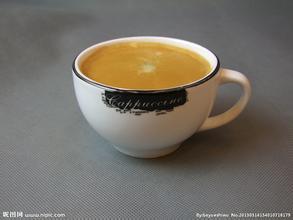Introduction to the characteristics of Bolivian coffee flavor varieties with sour taste of citrus fruits
China Coffee Network
In the past, most of the coffee in Bolivia was of mediocre quality, but in recent years, the production of boutique coffee has developed rapidly, and there have been a lot of pretty good beans. In recent years, the COE (Cup of excellence) system, which was first implemented in Brazil, has gradually become popular. Bolivia has also introduced this system, which, on the one hand, can stimulate the enthusiasm of coffee farmers, on the other hand, it is also to improve the quality of coffee. COE beans are better than ordinary coffee in both raw and roasted coffee.
The aroma of Bolivian coffee is rich and unique, both the aroma of ground beans and the aroma of coffee are obviously rich, similar to the mixture of flower and fruit aroma, impressive.
Coffee mellow Tour (25) Bolivian Coffee
The acidity is medium and low, but the feeling is not monotonous, but calm and generous, soft and fresh. In the sour taste, you can even feel the sour taste of citrus fruits.
The overall taste of Bolivian coffee is rich and balanced, in addition to the beautiful sour taste, there is also a shallow chocolate flavor, smooth taste is more smooth, by contrast, the bitter taste is not obvious. The aftertaste of the coffee is very good, and the sweet taste in the mouth lingers after drinking it. The wonderful experience of this coffee is unforgettable. Bolivia is a landlocked country in South America. It is the only country in South America without a coastline. It is also one of the poorest countries in South America. It is not one of-- so, for those of you who want to come to Bolivia, there are no five-star hotels, no luxurious gourmet meals. Not to mention a full tour guide who speaks fluent Chinese. If you want to see the luxurious six-star scenery, be prepared to bear hardships!
Although Bolivia is rich in mineral resources-the world's largest lithium mine is found here, the country has been bullied for historical reasons, from the Inca empire to Spanish colonists and now its rising neighbors. The history and genes of a country determine the minds of the people who live here. This is the only country that restricts access to McDonald's and KFC, a country where tourist visas are extremely difficult, and where it is difficult to move without speaking Spanish.
Gao Xiaosong said in Xiao Shuo: "God is fair. When he gives the people of this country a free and lazy personality, he also opens another door to bring beautiful scenery and endless resources to this place." Bolivia is such a country with poor people but beautiful scenery and rich resources. Bolivia has many "best in the world". It is the highest, most isolated and rugged country in the world. it is also the coldest, warmest, windiest and foggy place on earth. So, in the world's highest capital, La Paz, like other cities in the world, is busy with traffic. As night falls, cars struggle to move forward in traffic jams, and the great drop in altitude in La Paz brings trouble for Turtle's cars to go up and down the hill. however, Arabica coffee has a beautiful night scene that other cities do not have, Arabica coffee cannot be grown in cold places above 2000 meters above sea level. if the altitude is too high, coffee trees will frost because the temperature is too low. So Bolivian coffee is mainly grown in the Yungas region northeast of La Paz. It borders the Amazon basin and is about 1500-2500 meters above sea level with an average annual temperature of about 10-15 ℃. Therefore, it ensures the suitable temperature for the growth of coffee and protects the coffee plant from frost. In addition, the Bolivian coffee growing area has a distinct dry and wet season and fertile soil, which is a paradise for the development of boutique coffee. Bolivian coffee is usually picked by hand and is mostly processed by washing.
The early Bolivian coffee was of low quality and the market was very poor. Usually the picked coffee fruit is bumped all the way to the processing plant after a simple peeling treatment. Due to the imperfect infrastructure, the traffic is underdeveloped. Coffee farmers have to overcome the rugged mountain road and transport the beans to the higher altitude area of La Paz for washing. If the coffee fruit is not delivered to the processing plant in time, it is easy to ferment and rot on the wet mountain road. As a result, the coffee of good quality was destroyed.

Important Notice :
前街咖啡 FrontStreet Coffee has moved to new addredd:
FrontStreet Coffee Address: 315,Donghua East Road,GuangZhou
Tel:020 38364473
- Prev

Introduction of varieties and characteristics of Ethiopian Coffee Manor with long aftertaste and bright flavor
Coffee trees are native to the highlands of southwestern Ethiopia in Africa. It is said that more than a thousand years ago, a shepherd found that the sheep had eaten a kind of plant, became very excited and lively, and then discovered coffee. It is also said that a coffee forest was accidentally destroyed by a wildfire, and the smell of barbecue coffee attracted the attention of surrounding residents. The local aborigines often grind the fruit of the coffee tree and then grind it
- Next

Introduction to the characteristics of the flavor and taste of Yega Sheffield Wauka coffee with heavy dried fruit flavor.
The coffee trees of Yejiaxuefei, a Chinese coffee network, were planted by European monks (a bit like Belgian monks planting wheat to brew beer), and were later transferred to farmers or cooperatives. Yega Xuefei is actually constructed by surrounding coffee communities or cooperatives, including Edido Idido, Hafusha Harfusa, Hama Hama, Biloya, near Fog Valley Misty valley.
Related
- Detailed explanation of Jadeite planting Land in Panamanian Jadeite Manor introduction to the grading system of Jadeite competitive bidding, Red bid, Green bid and Rose Summer
- Story of Coffee planting in Brenka region of Costa Rica Stonehenge Manor anaerobic heavy honey treatment of flavor mouth
- What's on the barrel of Blue Mountain Coffee beans?
- Can American coffee also pull flowers? How to use hot American style to pull out a good-looking pattern?
- Can you make a cold extract with coffee beans? What is the right proportion for cold-extracted coffee formula?
- Indonesian PWN Gold Mandrine Coffee Origin Features Flavor How to Chong? Mandolin coffee is American.
- A brief introduction to the flavor characteristics of Brazilian yellow bourbon coffee beans
- What is the effect of different water quality on the flavor of cold-extracted coffee? What kind of water is best for brewing coffee?
- Why do you think of Rose Summer whenever you mention Panamanian coffee?
- Introduction to the characteristics of authentic blue mountain coffee bean producing areas? What is the CIB Coffee Authority in Jamaica?

